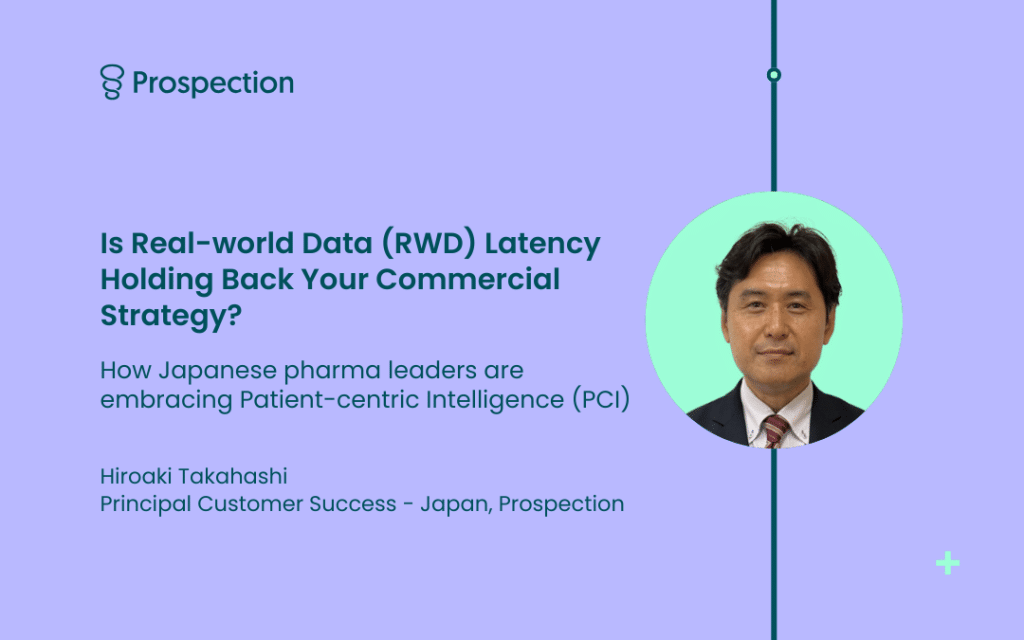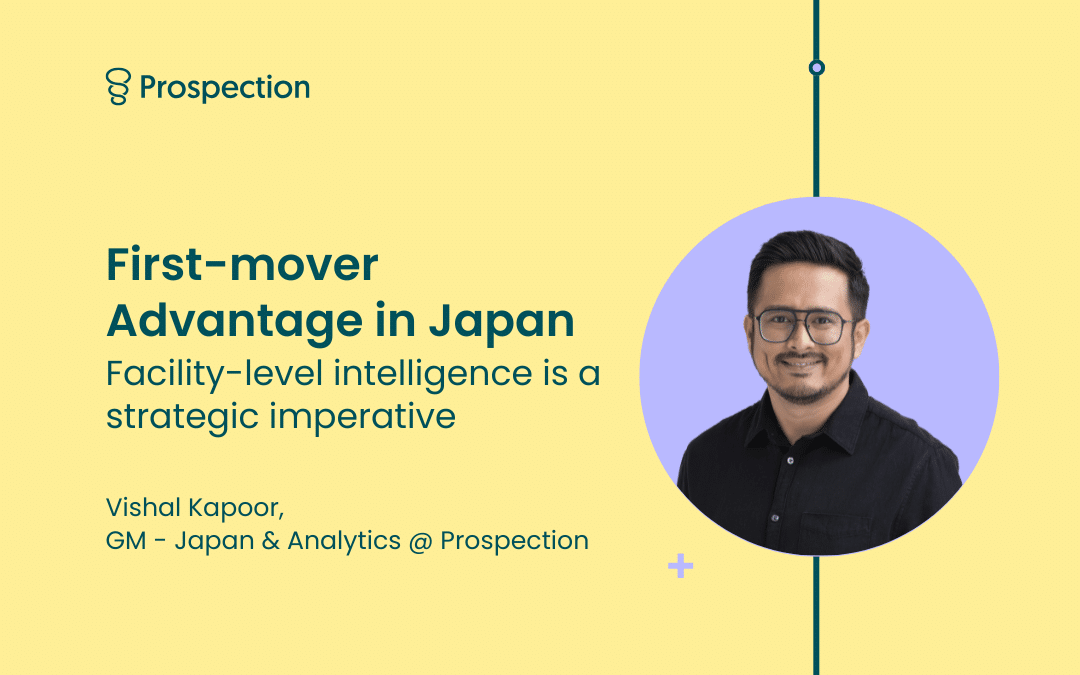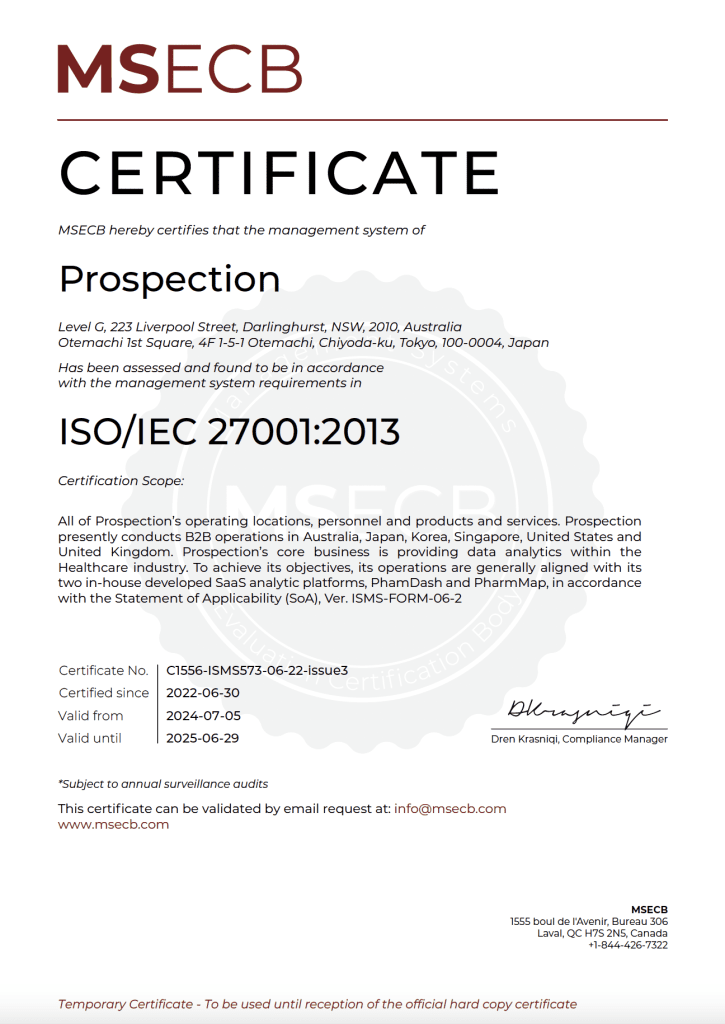Japanese pharmaceutical leaders are transforming how they think about patient data. While discussions previously centered on data latency, forward-thinking executives now focus on a more crucial question: How can patient data drive commercial success? With multiple stakeholders, complex approval processes, and challenging market dynamics, pharmaceutical companies need deeper market understanding than ever before. Our experience working with pharma teams over the last 12 years shows that patient data remains fundamental to commercial strategy, offering benefits that far outweigh timing considerations.
Three key factors make claims data strategically vital to Japanese pharmaceutical companies despite latency.
First, treatment patterns show remarkable stability across quarters, especially in specialty medicine. Analysis of oncology protocols reveals that institutional treatment regimens typically evolve over years, not months. This stability makes patient data highly predictive of current market dynamics and invaluable for commercial planning.
Second, claims data provides comprehensive longitudinal insights that other data sources cannot match:
- Multi-year patient progression patterns
- Treatment sequencing across providers
- Real-world adherence behavior
- Facility-level market share dynamics
- Provider prescribing preferences across indications
Third, traditional commercial intelligence shows significant limitations. While field teams theoretically offer real-time insights, current healthcare facility access restrictions and trust-dependent relationships create substantial blind spots. Our research indicates that even well-staffed field teams typically capture less than 60% of relevant prescribing activity in their territories.
Patient data, claims data, real-world data – these terms describe different aspects of the same goal: understanding actual patient care and treatment patterns. Patient-centric Intelligence (PCI) unifies these data sources through sophisticated analytics, transforming disconnected healthcare events into a clear picture of patient journeys, treatment decisions, and outcomes. It reveals not just what happened, but provides context for why it happened and what’s likely to happen next. By enriching raw data with clinical context and advanced analytics, PCI gives pharmaceutical companies a more complete and actionable view of their market than any single data source can provide.
Transforming Data Into Commercial Value
The evolution of analytics technology is reshaping how pharmaceutical companies extract commercial value from patient data. While medical affairs teams have long used this data to understand treatment patterns, advanced analytics now enable broader commercial applications that bridge traditional organizational divisions.
Modern platforms combining AI and statistical modeling transform patient data into a shared strategic asset, patient-centric intelligence (PCI).
With PCI, Commercial and medical affairs teams can now collaborate around:
- Forward-looking market projections that anticipate facility-level changes in treatment patterns
- Population modeling that reveals untapped opportunities across indications
- Early warning systems that identify shifts in prescribing behavior before they appear in sales data
- Evidence-based analysis of treatment effectiveness that supports both clinical and commercial decisions
- Cross-indication insights that help optimize resource allocation and engagement strategies
This technological progress means companies no longer face a choice between comprehensive understanding and timely action. PCI now serves as a foundation for unified commercial strategy, enabling teams to:
- Base decisions on actual rather than reported treatment patterns
- Identify high-potential facilities before competitors
- Optimize resource allocation across indications
- Track the impact of commercial initiatives through objective measures
- Align medical affairs and commercial activities around shared evidence
From Data to Strategic Advantage
Leading pharmaceutical companies are shifting focus from data recency to data quality and analytical depth. Claims data provides unique strategic advantages:
- Complete patient journey visibility
- Actual versus stated treatment patterns
- Granular market share dynamics
- Evidence-based effectiveness measures
Our work with pharmaceutical clients shows that companies leveraging transformed claims data (PCI) effectively typically achieve:
- 15-20% improvement in targeting accuracy
- 10-15% increase in commercial team productivity
- 2-3x better prediction of market opportunities
- More precise facility-level resource allocation
- Better alignment between medical affairs and commercial teams
Embracing Data-Driven Leadership in Japanese Pharma
The future of pharmaceutical commercial strategy in Japan will belong to companies that embrace data-driven decision-making. While claims data latency has been a longstanding concern, forward-thinking leaders recognize that its predictive power, depth, and stability outweigh timing limitations. By investing in advanced analytics and cross-functional collaboration, companies can transform patient data into a competitive advantage—identifying market opportunities, optimizing resource allocation, and aligning commercial and medical affairs teams around shared evidence.
Rather than viewing claims data as an imperfect tool due to its time lag, pharmaceutical companies should see it as a strategic asset that, when leveraged correctly, enhances long-term commercial success. Those who move beyond the latency debate and harness the full potential of patient data will be best positioned to drive market leadership in an increasingly complex healthcare landscape.
—————-
Facility Insights is powered by patient-centric intelligence, illuminating behaviors for precision in account profiling and field-force resourcing like no other data can. Contact us now to arrange a demo.
In Japan, Facility Insights is designed for internal management use to inform strategic decisions. It is not intended for direct use by or distribution to field force teams. Features and capabilities may vary depending on region, dataset, and indication.





